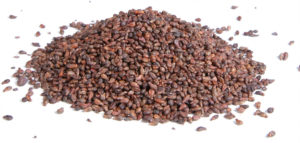Grapes – along with their leaves and sap — have been traditional treatments in Europe for thousands of years. Grape seed extract is derived from the ground-up seeds of red wine grapes. Although fairly new to the U.S., grape seed extract is now used to treat a number of diseases.
Contents
Uses
Although fairly new to the U.S., grape seed extract is now used to treat a number of diseases.
Benefits
- There’s strong evidence that grape seed extract is beneficial for a number of cardiovascular conditions.
- Grape seed extract may help with a type of poor circulation (chronic venous insufficiency) and high cholesterol.
- Grape seed extract also reduces swelling caused by injury and helps with eye disease related to diabetes.
- Many people are interested in grape seed extract because it contains antioxidants. These are substances that protect cells from damage and may help prevent many diseases. However, it’s still too early to say whether the antioxidant properties of grape seed extract really benefit people.
- Researchers are studying grape seed extract to see if it might lower the risks of some cancers. For now, the evidence is not clear.Grape seed extract has been studied for use in many other conditions — ranging from PMS to skin damage to wound healing — but the results have been inconclusive.
Cautions
- Side effects. Grape seed extract is generally considered safe. Side effects may include headache, itchy scalp, dizziness, and nausea.
- Risks. People allergic to grapes should not use grape seed extract. If you have a bleeding disorder or high blood pressure, talk to your doctor before you start using grape seed extract.
Interactions
If you take any medicines regularly, talk to your doctor before you start using grape seed extract. It could interact with drugs like blood thinners, NSAID painkillers (like aspirin, Advil, and Aleve), certain heart medicines, cancer treatments, and others.
Other names
N/A
References
Source: WebMD, http://www.webmd.com/diet/grape-seed-extract

